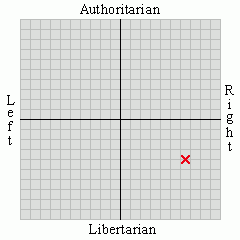At the moment I am struggling my way through a book. Yes, I am well-educated and can read even quite long words. The book is well-written and contains all the information needed to grasp the idea it presents. Those concepts are quite sophisticated, but they are within my wit, no more difficult to understand than some of the concepts I teach my more able students (I am involved in vocational training).
The book is Descarte’s Error by Antonio Damasio, and it concerns the functioning of the human brain, with particular emphasis on the influence of the body on emotion and thus on reason.
The problem is that the subject is well outside my field, and I don’t have the basic grounding. I am having to learn the fundamental knowledge in neurophysiology, and so I have to read slowly, refer back frequently, understand a new vocabulary and a structure of basic facts and concepts. Only then can I grasp the more sophisticated ideas in the book.
This morning it struck me that I am suddenly like an ideal product of modern educational trends, the trend not to teach facts and knowledge, but to teach the ability to find out information.
I have the ability to carry out literary research, look up new ideas in secondary sources, be they paper or digital. I even have the ability to carry out primary research if needed – after all I have a science degree, and the fundamental difference between a diploma and a traditional degree is that the degree should contain an element of original research.
However in the fields of neurophysiology and psychology I have only the sketchiest of actual knowledge. I knew the brain had a temporal lobe, but had no idea where it was (it’s the bottom bit). I had heard the term ‘limbic system’ but had no clue what it meant (the evolutionarily ‘old’ bits, but the definition varies).
That is why I find the book hard going. That is why every student going through the UK state school system at the moment will find areas of life difficult. Academic life will of course be affected, but so will politics, management in all but the simplest fields, business and so on.
They have every bit as much ability as I to read through a book and understand the concepts, or to find out new information. What they are going to lack is the structure of basic knowledge in a wide variety of fields, and gradual specialisation in increasingly narrow fields as they progress.
Without that structure of knowledge, a structure that is not inherent, and will not be significantly assisted by teaching those in the start of their secondary education how to do basic research then sending themselves off to write an essay on what a peasant might have thought about Tudor England, they cannot easily take on new information.
The ability to read non-fiction or to research efficiently depends on a structure of knowledge, in order to direct the research, understand and order the new information, express that information if passing it on and to help recognise erroneous conclusions (either one’s own or any contained within a book or article). The structure of knowledge should be imparted in primary and secondary education. The ability to discover knowledge for one’s self should be emerging in the end of secondary education and through tertiary education.
I do not work in the field of child education. My assumptions about modern theories comes, I admit, from popular not academic sources. However I not only know academics who despair of the lack of basic knowledge of those seeking university education but I also see the lack of knowledge in some of those I teach who were educated in the 1990s and 21st century. Only once did I make the error of assuming that the class member who had a CSE* in maths might struggle with that element of the course I was teaching, compared with those with GCSEs. He had more thorough grounding in maths than most of the younger students.
*For the non-British (or very young) reader, CSEs were exams taken at age 16 before 1988. They were taken by the pupils considered less academically able (the more able took O levels). GCSEs were taken by pupils of all the normal range of abilities from 1988 onwards. So the CSE holder would have had an education earlier, but with less depth by the standard of the day.




1 comments:
I've been thinking about this a lot myself recently too richard.
When I am supervising someone on a technical project I try to impart two things to them - i) that being good in a technical (ICT) area isn't so much about what you remember as your attitude - that you can find a way and ii) they don't have to remember everything, or know lots of technical information, and where knowledge really counts in this area - its simply knowing what is actually possible.
One of my friends recently published a book - 'Rising in Words' that contained an absolutely outstanding extended essay on the Generalist versus the Specialist - he makes a thorough and convincing argument that many of the fundamental problems that ail us are down to there being not enough Generalists and too many Specialists.
Also, while we're on the topic, saw this over at Tom Paine's.
Post a Comment